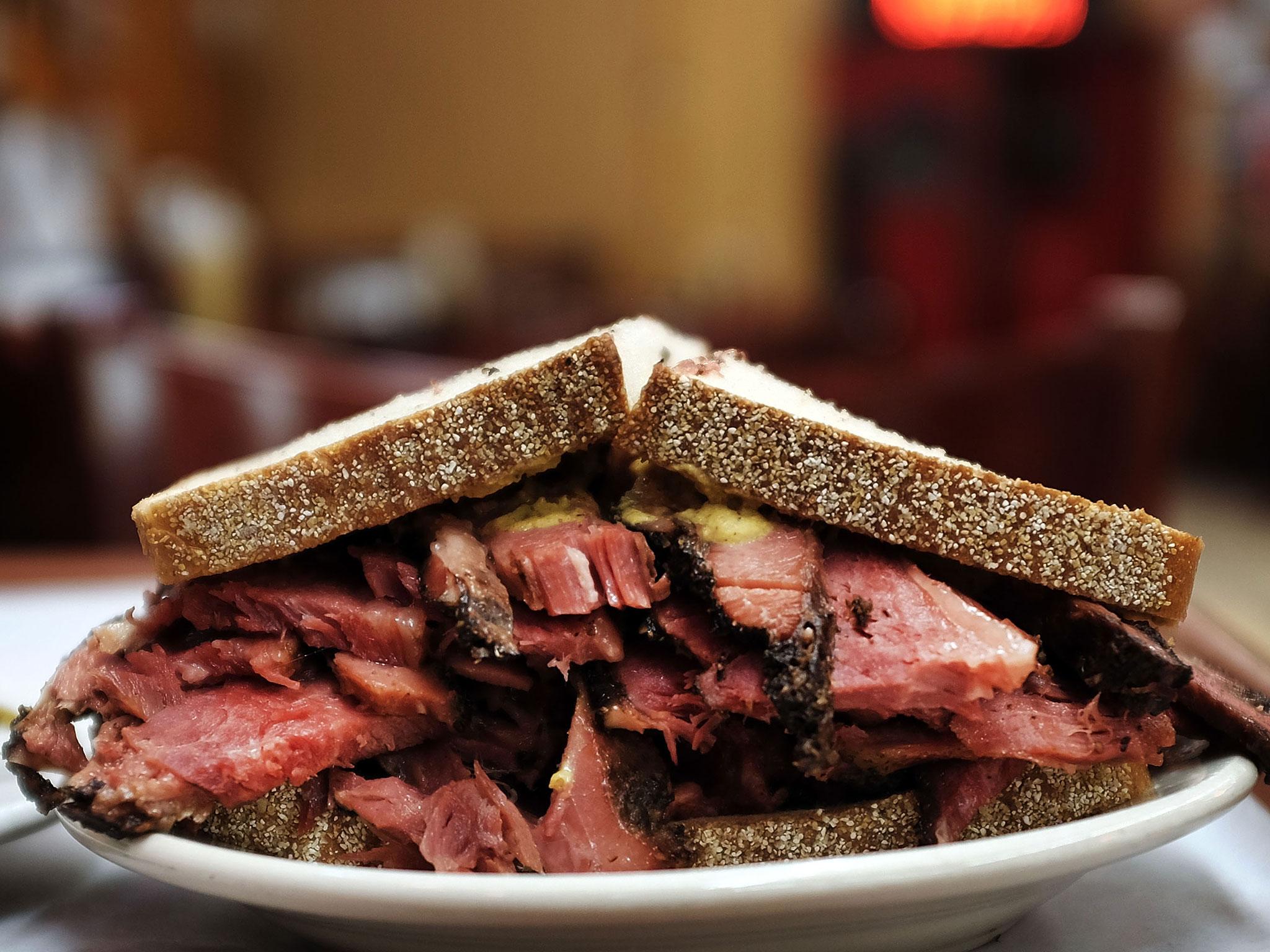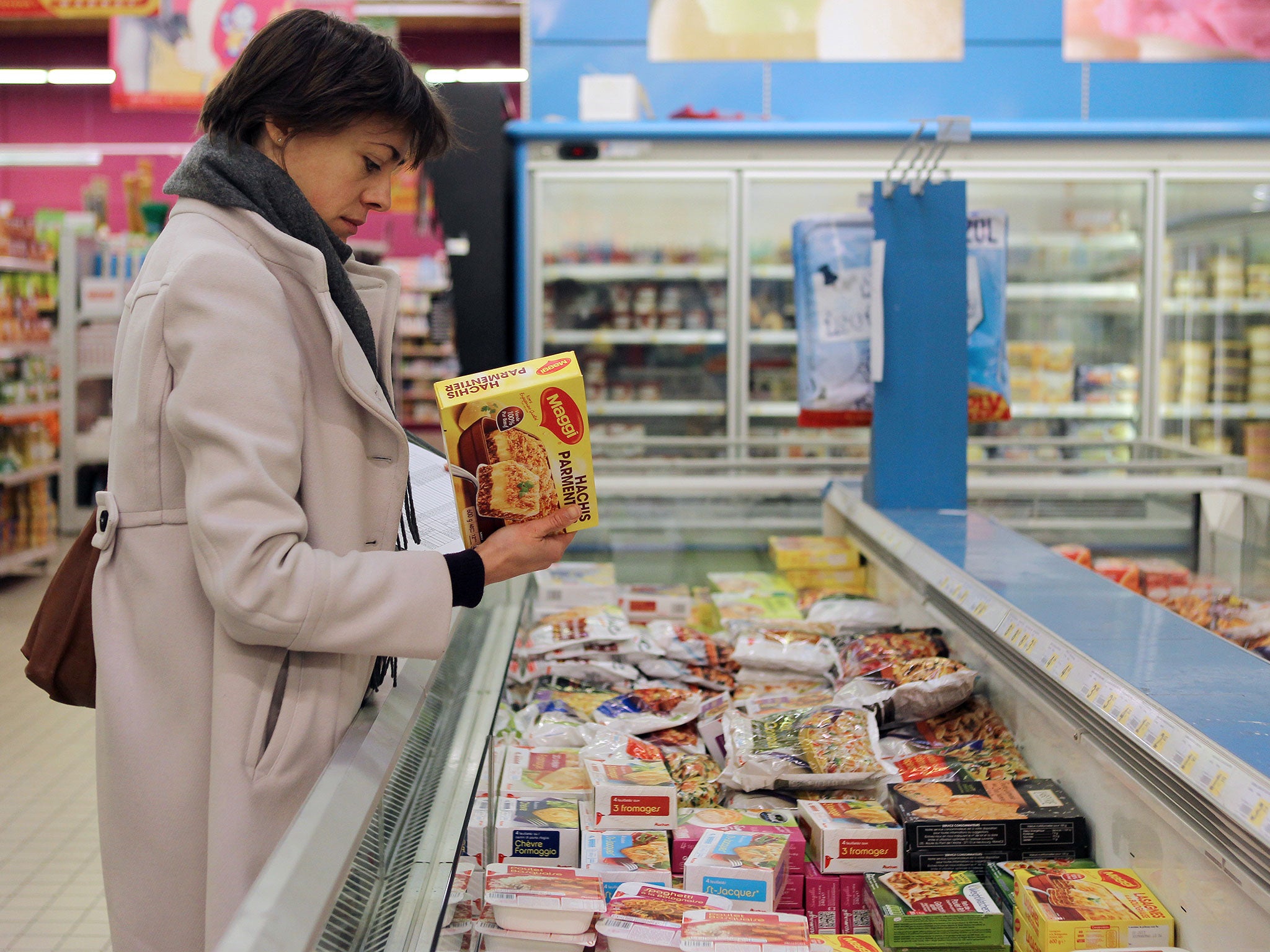Processed and red meats are linked to cancer - so how dangerous is a bacon sandwich?
The WHO report warned that certain meats can caused cancer - but should we abandon it entirely?

Your support helps us to tell the story
From reproductive rights to climate change to Big Tech, The Independent is on the ground when the story is developing. Whether it's investigating the financials of Elon Musk's pro-Trump PAC or producing our latest documentary, 'The A Word', which shines a light on the American women fighting for reproductive rights, we know how important it is to parse out the facts from the messaging.
At such a critical moment in US history, we need reporters on the ground. Your donation allows us to keep sending journalists to speak to both sides of the story.
The Independent is trusted by Americans across the entire political spectrum. And unlike many other quality news outlets, we choose not to lock Americans out of our reporting and analysis with paywalls. We believe quality journalism should be available to everyone, paid for by those who can afford it.
Your support makes all the difference.A recent WHO report warning that processed and red meats can cause cancer may have left you thinking a little harder about whether to pick up that bacon butty for breakfast or ditch a beef-filled Bolognese for dinner - but how worried should we be?
The review of 800 studies for the International Agency for Research on Cancer (IARC) prompted global health experts to cast processed meats - including bacon, ham and sausages - into the ominous-sounding list of group 1 carcinogens, where they joined formaldehyde, gamma radiation and cigarettes.
Eating just a 50g portion of processed meat – or two rashers of bacon - a day increases the risk of bowel cancer by 18 per cent, the experts concluded.
The outlook also appears bleak for those who eat red meat, as food like steak and lamb chops were categorised as “probably” carcinogenic – alongside the weed-killer component glyphosate and the pollution caused by burning wood indoors.
For those who regularly eat meat and don't feel any worse for it, it begs the question of whether the report is another scare-mongering piece of advice to discard, or an important piece of information which could add decades to your life.
But stripping back the report and contexualising the statistics quickly reveals how harmful that kebab you might be resisting really is.

As an institution which focuses on cancer, the IARC tasked the two-dozen experts who took part in the report with analysing the 800 studies in relation to the disease alone.
The working group therefore did not address the nutritional value of meat, including its iron, protein and micronutrient content, “nor, for that matter [...] the enjoyment of eating meat,” Professor Bernard Stewart, the chair of the IARC working group and a professor at the University of New South Wales, Australia, explained on The Conversation.
And while most people in the developed world need no longer rely on meat for maintaining a healthy diet – more on that later – studies have shown that it essentially helped to build the modern world.
By feeding on animals around 2.3million years ago and consuming additional fat and calories, our previously -plant-eating ancestors essentially awakened their brains - enabling them to build better tools and become the dominant species on earth.
So, what, if anything, about modern-day meat-eating habits transformed it from a life-changing substance to something that can cause terminal illness?
The answer partly lies in understanding statistics, according to Professor Sir David Spiegelhalter, Winton Professor of the Public Understanding of Risk, University of Cambridge.
“There may be good evidence for there being an increased risk [in developing cancer after eating meat], but the magnitude needs to be put into perspective,” he said.
On average, around 6 in every 100 people in the UK will get bowel cancer in their lifetimes – regardless of whether they eat meat. The 18-per cent rise in the risk of bowel cancer the IARC scientists warned of is from this base level – not in total.
“So that’s one extra case of bowel cancer in all those 100 lifetime bacon-eaters,” said Professor Spiegelhalter.
A 2011 video of Dr David Spiegelhalter explaining the risks of eating a bacon sandwich
Experts who have commented on the IARC findings have also stressed that not all substances on the WHO carcinogen lists are equally harmful, and headlines warning that bacon is as bad as smoking are simply misleading.
“It is important to put these results into perspective: three cigarettes per day increases the risk of lung cancer six-fold (600 per cent) – eating 50g of processed meat increases the risk of colorectal cancer by 20 per cent,” said Dr Gunter Kuhnle, a food nutrition scientist at the University of Reading.
“This is still very relevant from a public health point of view as there are more than 30,000 new cases per year – but it should not be used for scaremongering.”
The findings should not be used for scaremongering
However, meat is not entirely off the hook, and simple methods of preparation can raise health risks.
Studies indicate that nitrates used to preserve processed meat likely make it more carcinogenic when compared with red meat, while cooking can also pose problems.
Dr Ian Johnson, Emeritus Fellow at IFR and Honorary Research Fellow in the School of Medicine at UEA, explained: “When you heat protein and fat, particularly in BBQing, the very high temperature cooking produces again carcinogenic chemicals by breaking down protein. These compounds then enter the circulation system or sit in the intestine and damage cells."
Further complicating matters is the fact that the IARC report was epidemiological, and encompassed results on many different types of processed and red meat.
This is useful for creating broad recommendations, but does not mean that an upmarket Parma ham and a chipshop saveloy are equally harmful. Because of this, the report’s findings are not new, and so current NHS recommendations that people can safely eat 70g a day can still be followed.
And for some people, meat can be an important addition to their diet, particularly those who are prone to iron deficiency, such as young women who have just started menstruating.
“It is not crucial to eat meat. [However] meat is an excellent source of iron,” said Dr Johnson, adding: “whereas middle-aged men are not at risk so it’s not necessarily beneficial for them.”
Dr Johnson himself said that he will not be drastically changing his diet in light of the report.
“On that list there are things like alcohol – ethanol is a known human carcinogenic. Many of us choose to drink alcohol knowing that. I think it’s about balance and personal choice. Balancing risk against what is essential to a happy lifestyle.
“Speaking personally I’m not going to change my eating habits as a result of this. I don’t eat that much processed meat as it happens. But if you’re a heavy consumer of processed meat then it’s useful to be aware of the fact that there’s a risk, and maybe take steps to reduce consumption.”
Those who wish to cut down can make simple substitutions – like swapping ham sandwiches for chicken, and bulking up bologneses with beans and vegetables.
Dr Johnson also hit back at the idea that the report is another example of how “everything gives you cancer”.
“The kind of advice that is around is more consistent than people think, but you have to look for it. It’s all part of living in the modern world.”
So, the overwhelming verdict is a familiar one: keep everything in moderation, including worrying about scary-sounding studies.
Join our commenting forum
Join thought-provoking conversations, follow other Independent readers and see their replies
Comments